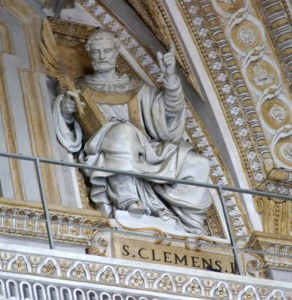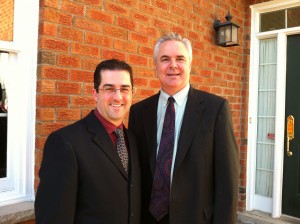 Today is the feast day of Saint Clement, Pope and martyr. I’ve always felt his life and writings were eloquent testimony to papal primacy in the early Church.
Today is the feast day of Saint Clement, Pope and martyr. I’ve always felt his life and writings were eloquent testimony to papal primacy in the early Church.
Clement, who, according to Tertullian, was the direct successor of St Peter as bishop of Rome, was the author of a document that has come to be known as 1 Clement (there is a 2 Clement, but it’s author is most likely someone else). This letter was written to the church in Corinth, where the properly ordained presbyters of the Church had been unlawfully deposed by the people.
Clement orders the people to repent and obey their rightful leaders, and warns them of the dire consequences should they refuse:
“But if certain persons should be disobedient unto the words spoken by Him through us, let them understand that they will entangle themselves in no slight transgression and danger” (1 Clement 59:1).
All of this is quite interesting, considering that at the time Clement wrote this (c. 96), the Apostle John himself was still living in Ephesus, a city much closer to Corinth than Rome. Rather than turn to a living apostle, the Corinthians turn to the successor of Peter to solve their problem.
Did Clement’s intervention work? You bet. Not only were things set right in Corinth, but Clement’s letter was read to the congregation right alongside scriptures like St. Paul’s Corinthian correspondence for generations. Although 1 Clement was not ultimately included in the New Testament canon, it still provides one good piece of evidence that Papal primacy was not a later accretion or invention, but rather an integral feature of the Church Jesus founded.


 Today’s
Today’s  I just wrapped taping of an episode of
I just wrapped taping of an episode of